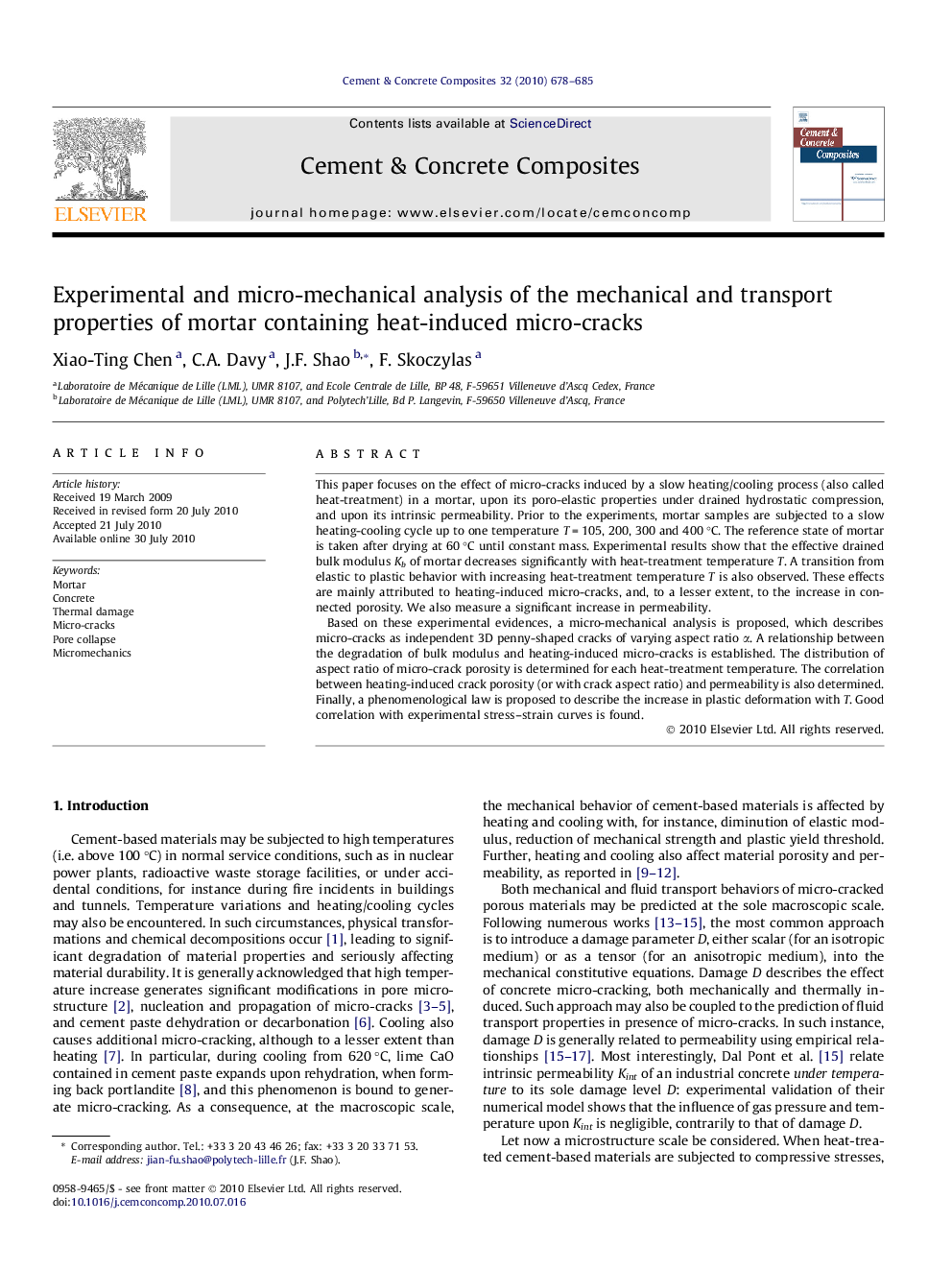| Article ID | Journal | Published Year | Pages | File Type |
|---|---|---|---|---|
| 1455267 | Cement and Concrete Composites | 2010 | 8 Pages |
This paper focuses on the effect of micro-cracks induced by a slow heating/cooling process (also called heat-treatment) in a mortar, upon its poro-elastic properties under drained hydrostatic compression, and upon its intrinsic permeability. Prior to the experiments, mortar samples are subjected to a slow heating-cooling cycle up to one temperature T = 105, 200, 300 and 400 °C. The reference state of mortar is taken after drying at 60 °C until constant mass. Experimental results show that the effective drained bulk modulus Kb of mortar decreases significantly with heat-treatment temperature T. A transition from elastic to plastic behavior with increasing heat-treatment temperature T is also observed. These effects are mainly attributed to heating-induced micro-cracks, and, to a lesser extent, to the increase in connected porosity. We also measure a significant increase in permeability.Based on these experimental evidences, a micro-mechanical analysis is proposed, which describes micro-cracks as independent 3D penny-shaped cracks of varying aspect ratio α. A relationship between the degradation of bulk modulus and heating-induced micro-cracks is established. The distribution of aspect ratio of micro-crack porosity is determined for each heat-treatment temperature. The correlation between heating-induced crack porosity (or with crack aspect ratio) and permeability is also determined. Finally, a phenomenological law is proposed to describe the increase in plastic deformation with T. Good correlation with experimental stress–strain curves is found.
